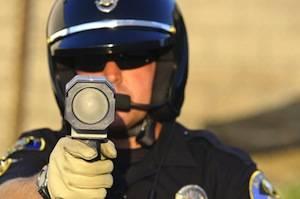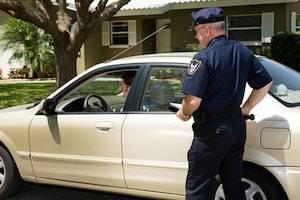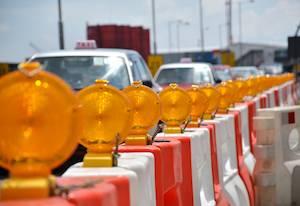Recent Blog Posts
What are the Penalties for Underage Drinking Charges in Illinois?

Underage drinking is on the decline nationwide, with only an average of 14 percent of American 12th-grade students stating they binge drink alcohol on a regular basis. Still, thousands of American teenagers take part in underage drinking, which is dangerous for a number of reasons. This includes driving under the influence of alcohol.
It is also important to understand an illegal consumption charge can come with serious legal consequences. If your son or daughter is charged with underage drinking, it is time to secure skilled legal assistance.
Underage Drinking Dangers
Outside of the serious legal trouble that can come with underage drinking, consuming alcohol as a minor is a legitimate health threat. According to the Centers for Disease Control and Prevention (CDC), underage drinking is responsible for an average of 4,300 deaths in the United States every year. Many of these deaths are due to alcohol poisoning, but a large percentage are due to drinking and driving. Drunk drivers under the age of 21 are more likely than any other age group to be involved in an auto accident. Other common health symptoms related to underage drinking include memory problems, alterations in brain development, and potential abuse of other drugs.
Types of Reckless Driving in Illinois

According to the Illinois Department of Transportation, nearly 1,100 people were killed in motor vehicle collisions statewide in 2017 while thousands of others suffered serious injuries. Due to the high number of traffic fatalities, Illinois law enforcement has increased surveillance and traffic tickets for reckless drivers. Reckless driving is defined as the act of overtly disregarding traffic laws and procedures while endangering oneself and others. If you have been cited for reckless driving charges, it is important to understand the potential consequences of a conviction.
Common Forms of Reckless Driving
A reckless driving charge can result in serious consequences. Listed below are some of the most common violations that constitute reckless driving charges.
Excessive Speeding
According to the National Highway Traffic Safety Administration (NHTSA), speeding plays a role in approximately 26 percent of annual fatal collisions throughout the United States. In 2017 alone, speeding took 9,717 American lives. Because of this, driving at excessive speeds, such as 20 mph over the legal limit, is considered reckless driving.
How a CDL Traffic Violation Can Impact Your Career

On an annual basis, thousands of commercial trucking accidents result in fatalities. In 2017, more than 4,000 people died in these crashes across the country. Due to the high number of truck accidents that involve severe injury, law enforcement takes traffic violations by truck drivers seriously, whether it occurs in their work or personal vehicle.
If you have been charged with a commercial drivers license (CDL) violation, you could face license revocation that can lead to loss of employment, in addition to heavy fines. In this situation, you need a skilled CDL traffic ticket attorney.
Common CDL Violations
A CDL traffic violation can come with serious complications for you and your employer. If you have been charged with a traffic violation outside of Illinois, state law requires you to report the violation. Below are some of the most common CDL tickets.
What is Aggravated Speeding in Illinois?

Here in the state of Illinois, traffic violations are taken seriously. One of the most harshly punished traffic offenses is an aggravated speeding ticket. Aggravated speeding is defined as driving 26 mph or more over the posted speed limit. If convicted, an aggravated speeding charge can lead to the loss of driving privileges, substantial fines, and potential jail time. If you have been charged with aggravated speeding, contact an experienced criminal defense lawyer immediately.
Aggravated Speeding Ticket Fine and Punishment
According to Illinois law, aggravated speeding constitutes a Class B or Class A misdemeanor, depending on the speed at which the driver was traveling when pulled over. If the driver was traveling between 26 and 34 miles per hour over the speed limit, they will likely be charged with a Class B misdemeanor. Driving 35 mph or more over the speed limit constitutes a Class A offense. Class B misdemeanors carry a maximum jail sentence of six months and potential fines up to $1,500. If your speeding constitutes a Class A misdemeanor, you could face up to one year in prison and $1,500 in fines.
The Impact of a DUI Test Refusal in Illinois

Here in the state of Illinois, drunk driving accidents make up 30 percent of all statewide motor vehicle crash fatalities. Because of the large number of drunk driving deaths, law enforcement officials have cracked down on DUIs in Illinois, making over 27,000 DUI arrests in 2017 alone. If you have been pulled over by a police officer, and have been drinking, it is easy to feel as if you have no options other than to submit to blood alcohol concentration (BAC) testing, but it is important to note that it is not a crime to refuse a DUI test.
BAC Test Refusal
As a driver in the state of Illinois, you imply consent to be DUI tested when you receive your driver’s license. That means refusing a BAC test is not a criminal offense, but rather an administrative offense.
While there are a number of options for law enforcement to test your BAC after pulling you over, including urine or blood drawings, the most common testing method is through the use of a breathalyzer. This is a device used to test the BAC of a person under suspicion of DUI, with the use of a breath sample.
Fighting a Work Zone Speeding Ticket in Illinois

Throughout the state of Illinois, traffic violations are taken seriously by law enforcement, especially those that occur within construction zones. According to the Illinois Department of Transportation (IDOT), around 4,500 crashes occur in work zones around the state every year. Due to the high number of accidents and the danger both drivers and workers face, construction zone speeding tickets can come with severe penalties. If you receive a ticket for a work zone traffic violation, you should contact a skilled traffic ticket attorney for help.
Work Zone Speed Limit Violations
Due to the increased injury risks associated with speeding in a construction zone, ticket fines are high, even for a first offense. For a conviction, a first-time offender will receive a minimum fine of $375, while any subsequent offenses result in a fine no less than $1,000. If two offenses occur within a two-year period, you could face driver’s license suspension up to 90 days. For drivers who hold a commercial driver’s license (CDL), a work zone violation may result in immediate license suspension, expensive fines, and potential loss of employment. In cases in which speeding is documented through the use of photo speed enforcement technology, standard fines and punishments still apply.
Seeking Legal Assistance After a DUI Arrest

Like every state, in Illinois, driving under the influence (DUI) can result in long-lasting consequences. From driver’s license suspension to revocation, and even potential jail time, there is no overstating the seriousness of a DUI charge and conviction. If you have been charged with DUI, finding an experienced criminal defense attorney can help you maintain your essential driving privileges.
DUI Penalties in Illinois
When considering the possible outcomes of a DUI conviction, it is important to understand the legal ramifications can vary, especially if there is a minor under 16 in the car or if you have a BAC of .16 or higher. The most likely outcome is license suspension.
License suspensions can last for various amounts of time, depending on the severity of the crime and the number of previous arrests. For instance, a first-time DUI offender is likely to face a sixth-month suspension for a failed chemical test, or 12 months for refusing a test. A second or subsequent conviction within five years is a one-year suspension, which bumps to three years for test refusal.
How Bad is a DUI Conviction?

Every year, more than a million Americans are arrested on DUI charges. According to the Illinois Secretary of State’s Office, more than 27,000 Illinoisans were arrested for driving under the influence of drugs or alcohol in 2017. If you have been arrested on DUI charges, it is important to understand the potential ramifications of a conviction and contact a legal team you can believe in.
DUI Conviction Consequences
According to Illinois law, a person can be convicted of a DUI for operating a vehicle with a blood-alcohol concentration (BAC) at or above .08, or with a marijuana tetrahydrocannabinol (THC) concentration of five nanograms or more. Even a first-time DUI conviction can come with serious legal consequences here in Illinois. A first DUI conviction is classified as a Class A misdemeanor in Illinois and can lead to as much as one year in prison and up to $2,500 in fines.
Understanding the Implications of Domestic Violence Charges

Every year, more than 10 million Americans are physically abused by an intimate partner. According to the National Coalition Against Domestic Violence (NCADV), this equates to one incident every 20 minutes. It is important to note many people accused of domestic violence are falsely accused.
Domestic violence charges can have a serious impact on your family law case and hurt your ability to gain future employment. If you have been accused of a domestic violence crime, it is important to seek skilled legal representation immediately.
Domestic Violence Impact on Legal Matters
The divorce process can be incredibly contentious, and in some cases, spouses try to use a domestic violence accusation as a way of gaining child custody or garnering a disproportionate amount of marital assets. According to the organization Stop Abusive and Violent Environments, allegations of domestic violence are made in approximately 25 percent of all divorce cases throughout the United States.
Illinois Drug Possession Penalties for Marijuana and Cocaine

Throughout the United States, more than 1.6 million people were arrested for drug law violations in 2016, according to the FBI’s Uniform Crime Report. Here in the state of Illinois, even minor drug charges can come with severe legal ramifications. As written in the Illinois Controlled Substances Act, different types of drugs and amounts warrant different legal consequences. Fines and jail time are also influenced by paraphernalia present and the intent of the alleged user.
If you have been arrested on any sort of drug charge, contact an experienced criminal defense attorney who can defend your rights.
Of the U.S. residents arrested on drug charges throughout 2016, more than 85 percent were cited for possession of an illegal substance. Here are the penalties for two of the most common substances involved in narcotics arrests:







